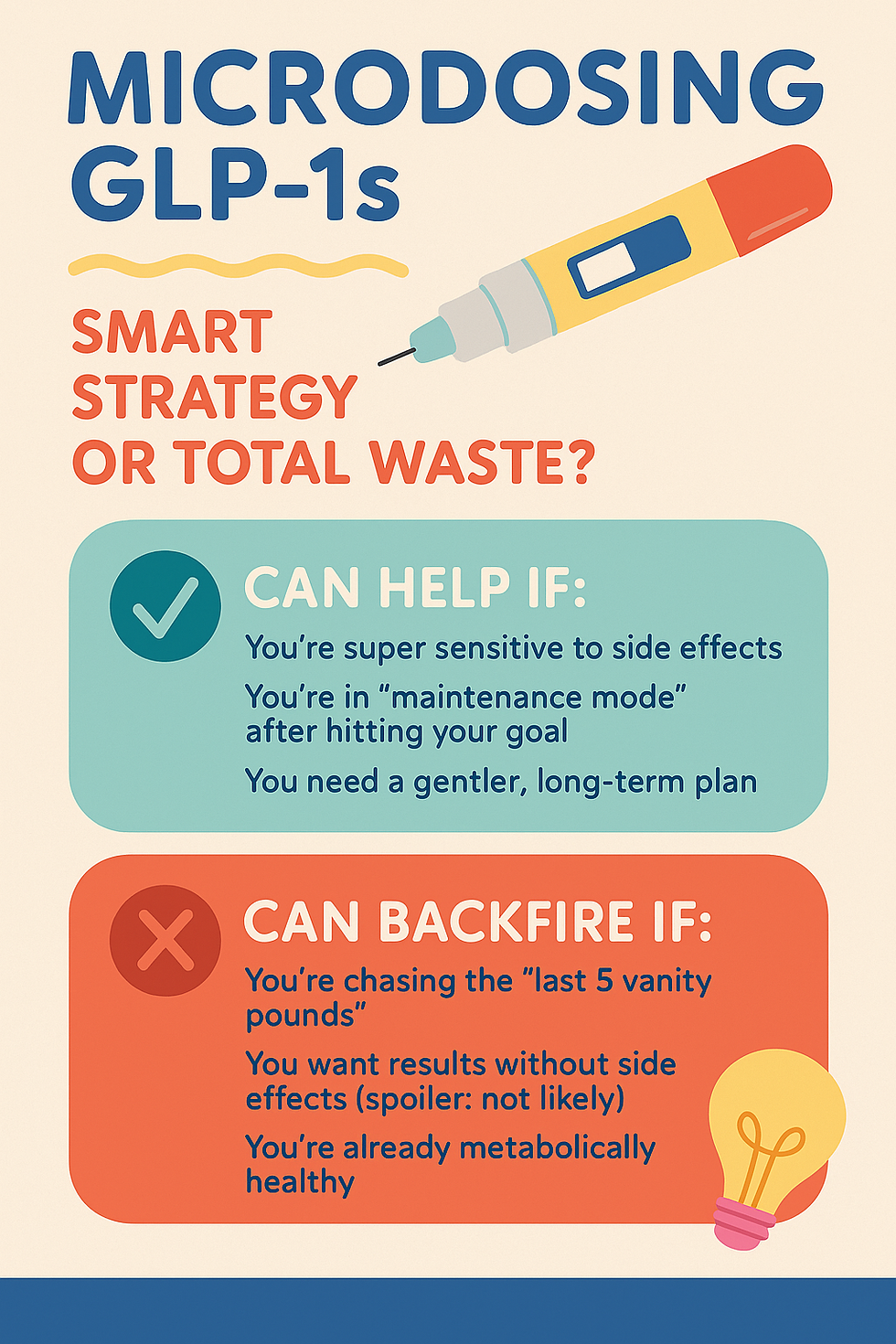Food Noise: The Mental Chatter You Didn’t Know You Could Turn Off
- Julie Brownley, MD, PhD

- Jun 27, 2025
- 2 min read
Updated: Jul 7, 2025

Imagine waking up and the first thing that crosses your mind is: What am I going to eat today? Not out of hunger—but habit, anxiety, guilt, or planning. Now imagine that voice running in the background all day long. That’s food noise.
What Is Food Noise?
"Food noise" refers to the constant mental chatter about food—what to eat, when to eat, how much to eat, and whether you should eat. It’s not the healthy awareness of hunger or enjoyment of meals; it’s the intrusive, repetitive thoughts that take up far more space in your brain than they should. For many people, especially those struggling with disordered eating, body image issues, or metabolic challenges, food noise can be exhausting.
How It Affects You
Food noise can be:
Mentally draining: Constant inner debates around food decisions erode mental energy.
Emotionally taxing: Guilt, shame, or fear can accompany every snack or meal.
Distracting: It interferes with your ability to focus, connect, and be present.
Time-consuming: The hours spent fixating on food could be spent elsewhere—on relationships, creativity, rest, or joy.
So, how many hours a day could you get back if the food chatter quieted down?
What Causes Food Noise?
Food noise can stem from:
Diet culture: Years of restrictive eating and labeling foods “good” or “bad.”
Metabolic dysregulation: Hormonal and nutritional imbalances can amplify cravings and obsessive thoughts.
Emotional regulation: If food is your primary coping strategy, it naturally stays top of mind.
Neurobiology: Reward pathways in the brain can become overactivated, especially in response to ultra-processed foods.
How Do You Treat It?
The good news: food noise can quiet down. Treatment often involves both therapeutic and medical approaches.
Therapeutic Approaches:
Cognitive Behavioral Therapy (CBT) or Dialectical Behavioral Therapy (DBT): Help you challenge distorted food thoughts and build new coping strategies.
EMDR (Eye Movement Desensitization and Reprocessing): Can help reprocess food-related trauma or compulsive urges.
Nutrition counseling: Helps restore a balanced relationship with food without fear or restriction.
Mindfulness & intuitive eating: Teach you to listen to internal cues instead of rules or cravings.
Medical Support:
Medications: GLP-1 receptor agonists like semaglutide (Ozempic/Wegovy), bupropion/naltrexone (Contrave), and others can reduce intrusive food thoughts and cravings.
Metabolic testing: Identifying and correcting issues like insulin resistance, thyroid imbalances, or nutritional deficiencies can improve mental clarity and reduce compulsive food focus.
Functional psychiatry: Treats the mind-body system as a whole—because food noise isn’t just in your head; it’s often in your hormones too.
Final Thought: Your Brain Was Meant for More
Food is important. But it shouldn't be the main character in your mental space. If you’re spending hours of your day thinking about food, you’re not broken—but your body and brain may need a reset.
Quieting food noise doesn’t mean losing control. It means getting your life back.




Comments